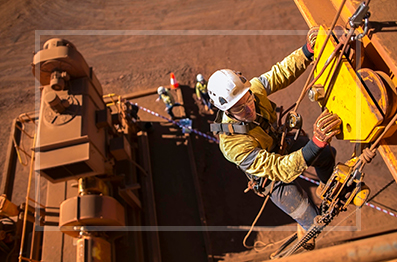 Were you hurt in a work accident or injured on the job?
Were you hurt in a work accident or injured on the job?
Are you wondering “What can a work injury lawyer do for me”? At the law firm of Fleming Law, our personal injury lawyers will investigate every detail related to your workplace accident and work hard to make sure you and your family are protected. Our Houston work injury lawyer can help.
Our central location means we are near to you regardless of your location and would be happy to meet at your home or job. Contact our personal injury lawyers today. Your initial consultation is free.
If you’ve had an accident and been injured on the job in Houston, our work injury lawyers do an independent investigation of every detail related to your accident
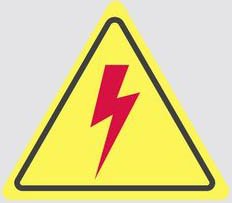
 OSHA INVOLVEMENT
OSHA INVOLVEMENT
 SAFETY PROCEDURES
SAFETY PROCEDURES
 EVIDENCE GATHERING
EVIDENCE GATHERING
 CULTURE & ENVIRONMENT
CULTURE & ENVIRONMENT
We will do our own investigation and determine if:
We will DEMAND that your employer keep any video, work logs, equipment, tools, or other evidence.
We will make sure your employer reports any serious injury to OSHA (Occupational, Health and Safety Administration).

 OSHA
OSHAWe make sure OSHA investigates. If the accident was serious, if an employee was hospitalized, or if there was a fatality, we ensure the company notifies OSHA so they can complete a detailed investigation.
If your employer decided to withhold the protection of workers’ compensation, Texas Law allows an injured worker to bring a claim against their employer.
Furthermore, as added protection for the worker, Texas labor law prohibits the employer from claiming that the work injuries were caused by the contributory negligence of the victim, that the employee assumed the risk, or that it was caused by a fellow employee.
These types of work injury cases are also known as “non-subscriber cases”.
If you have been injured at work and your Houston company lacks workers’ compensation coverage, your first step should be to contact experienced work-related injury lawyers immediately to protect your rights.


 SAFETY
SAFETYWe interview Safety Managers. Was there a violation of safety procedures? Many work-related injuries result from employees who are subjected to unsafe work conditions or are not properly trained.
Workplace on-the-job injuries can take many forms. Our work injury lawyers accept all types of job injury cases including, but not limited to:
More often than not, they involve serious injuries such as broken bones or a broken back and in some cases amputations and death. Get in touch with our Houston work injury attorneys today.


 EVIDENCE
EVIDENCEWe secure evidence. If a serious injury occurs we gather important evidence including video, photos, coworker testimony, work logs, operating equipment, tools, safety gear … anything that will help us determine what happened and how it happened.
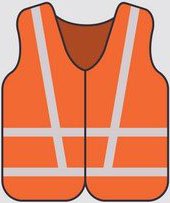
 CULTURE & ENVIRONMENT
CULTURE & ENVIRONMENTWe ask questions to understand the company culture and work environment. Is safety a priority or is it ignored? What is the company’s safety record? Could anyone have foreseen or prevented the accident?
Our on-the-job injury lawyers accept work injury cases and can discuss your options today. Whether your injury involves broken bones, back injuries, hearing loss, vision loss, shoulder injuries, brain injuries, or other serious injuries, contact us today to discuss your right to compensation.
Our Houston, Texas on-the-job accident attorneys handle all personal injury cases, including work-related injuries, on a contingency fee basis, meaning you don’t pay for our services unless you receive compensation for your injuries, and expenses will not be paid by you until you receive a settlement or payment of a judgment.
Employers must take every reasonable measure to protect their workers from harm. That’s not just an empty statement — it’s a legal fact. Federal and state laws require employers to meet numerous safety standards or risk serious penalties. Unfortunately, those rules are not always followed. Thousands of hardworking Texans are injured or killed in workplace accidents every year. Many of these incidents were the result of employer negligence.
The Texas Department of Insurance estimated that 185,299 workers sustained on-the-job injuries and illnesses in a single recent year ― and that’s only for jobs in the private sector that were actually reported. But at least half of all workplace injuries go unreported, according to the Occupational and Safety Administration (OSHA). That doesn’t paint a pretty picture of job safety in Texas. Contact our Houston work injury lawyer near me today.
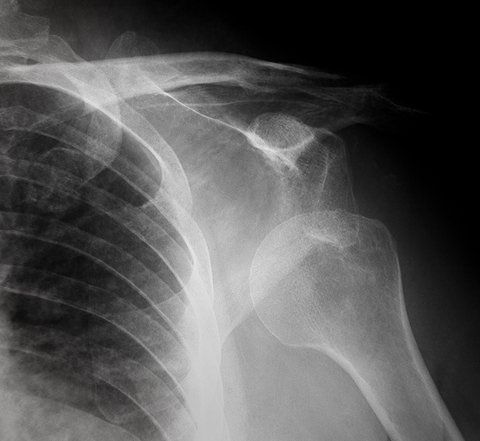
A workplace injury can affect an entire family, not just the injured employee. For families living off a single income, an extended period of time off work can cause significant financial hardship. Even dual-income households feel the pressure from lost wages, especially if workers’ compensation benefits are denied, unavailable or not enough to cover the extent of the injuries and losses.
If you are struggling after a workplace injury in Houston or surrounding areas of Texas, it’s a good idea to talk to a knowledgeable attorney for advice about your legal options. Many Texas workers have misconceptions about their ability to file a lawsuit involving workers’ compensation. State laws do protect some employers from being sued by an injured worker. But others are not exempt. It’s important to find out whether your employer or third parties may be held accountable for their negligence in court.
The law office of Fleming Law, P.C., combines a wealth of legal experience with compassionate care for injured clients. We represent people, including workers, in matters involving a variety of serious injuries. We know that an on-the-job injury is more than just a minor inconvenience. We have seen the devastation that catastrophic job injuries can cause. Our workplace injury lawyers fight to obtain results for clients that will provide financial stability during such stressful and uncertain times in their lives.
Contact our work injury law firm online today or call us for a free consultation.
Houston Workers’ compensation laws have been around since the early 1900s. They were designed to reduce the growing number of personal injury lawsuits that arose when someone was hurt at work, especially with the advent of heavy machinery and manufacturing during the Industrial Revolution. As those types of jobs boomed, so did the risk of serious injuries to American workers.
 Here’s the basic premise: Employers agree to buy workers’ compensation insurance that provides medical care and wage replacement to injured workers. In exchange, workers are barred from suing employers for negligence. It’s a compromised system, but also an incentive system intended to push employers to provide safe work environments or face insurance premium increases.
Here’s the basic premise: Employers agree to buy workers’ compensation insurance that provides medical care and wage replacement to injured workers. In exchange, workers are barred from suing employers for negligence. It’s a compromised system, but also an incentive system intended to push employers to provide safe work environments or face insurance premium increases.
Today, many states have mandatory workers’ compensation programs for most employers. Texas is different. It does not require employers to purchase workers’ compensation insurance. Those who do not are known as non-subscribers. If they choose a private insurance plan to cover their workers or none at all, it is possible to file a personal injury claim to collect damages for medical bills, rehabilitation, and pain and suffering, among other damages.
If you get hurt on the job in Texas, workers’ compensation might pay for your injuries if you meet the following criteria:
Some workers are exempt from workers’ compensation coverage, meaning they do not automatically qualify for benefits even if their employers have insurance. Independent contractors – such as freelancers, consultants, and gig workers – are exempt workers. Other workers that might be exempt include domestic workers, such as housekeepers and casual or seasonal workers.
The insurance company will want to limit how much they must pay for your claim. Your employer’s premiums increase when you file a claim, so they might also be eager to minimize or deny your claim. Your claim could be rejected if any of the following applies to your situation:
Unlike most states, Texas does not require most private employers to carry workers’ comp insurance. However, Texas employers are responsible for their employees’ work-related injuries – whether or not they have insurance.
Most employers have workers’ comp insurance because it keeps employees from suing the company when they get hurt at work. If you sustain an industrial injury while working for an employer without workers’ comp insurance, you could have grounds to sue your employer with the help of an attorney.
Workers’ comp insurance pays for your medical expenses and replaces some of your lost wages after an occupational injury. But if you have grounds for a third-party injury claim or lawsuit after an industrial accident, you could get money for additional losses, such as:
If an industrial worker dies in a Texas workplace accident, certain surviving family members could be entitled to the following types of workers’ comp death benefits:
Texas workers’ comp should pay for any reasonable and necessary medical treatment you need due to the industrial accident. If you have to miss time at work due to your injuries, workers’ comp also covers a portion of your average weekly wage before the injury. These wage replacement benefits are subject to statewide minimum and maximum amounts based on the median wage in Texas.
Furthermore, as added protection for the worker, Texas labor law prohibits the employer from claiming that the work injuries were caused by the contributory negligence of the victim, that the employee assumed the risk or that it was caused by a fellow employee.
There are several reasons why a workplace injury claim could be helpful for you:
We will conduct an independent investigation of your accident to determine if:
Then we take a multi-pronged approach to address the case thoroughly.
Job injuries can happen anywhere. However, some industries are inherently more dangerous because of the nature of the work. Serious injuries are often reported in fields including:
A job injury doesn’t have to be gruesome to have a serious effect on your life. Some of the most severe injuries can be invisible to the naked eye but render an individual permanently disabled. Other serious and deadly medical conditions may not even emerge until decades after the worker has retired. Even seemingly minor repetitive injuries can become more than mere nuisances without proper medical care.
Examples of workplace injuries include:
These types of injuries may be the result of:
It’s important to know that not every injury or illness can be connected to the workplace. Some medical conditions, such as carpal tunnel syndrome, can certainly be aggravated by working on a computer all day. But a variety of other factors (age, gender, prior medical history) could also be to blame for the illness. Proving causation is key if you seek to hold your employer accountable for negligence. Our workplace injury lawyers can help identify whether your injury is linked to your job and advise you on the next steps toward compensation.
Sadly, we see news stories every day that cover injured workers whose lives are forever changed by an accident at work. They bring to light the dangerous working conditions for dairy farmworkers, the many deaths that plague agricultural workers, in general, every year, and the significant injuries and deaths that those who work on construction sites face every day.
Under federal law, employers are required to provide a safe workplace. Sadly, the failure to abide by the laws and regulations in place to protect workers often results in workers getting injured or killed on the job.
If your employer has failed to ensure that safe working conditions are present, you can report the violation (ideally in writing) to the employer and to the federal and/or state OSHA office. In addition, under some circumstances, you have the right to refuse to work, such as if:
Your employer is prohibited, by law, from retaliating against you if you file a complaint about unsafe working conditions.
If you are injured at work, immediately inform your supervisor so that you preserve your right to receive workers’ compensation, if applicable.

OSHA provides employees and their representatives with the right to file a complaint and request an OSHA inspection of their workplace if they believe that their employer is not following OSHA standards. It is important to note that workers do not have to know whether a specific OSHA standard has been violated in order to file this complaint. However, you do need to act quickly: OSHA citations may only be issued for violations that currently exist or existed in the past six months.
If you are concerned that you are potentially dealing with dangerous working conditions, or you have already been injured on the job, speak with one of our experienced work injury attorneys right away. We service clients in and around Houston, Texas. Contact us today for a consultation and we will discuss the next steps.
In addition to complying with the standards, rules, and regulations under the OSH Act of 1970, the Occupational Safety and Health Administration (OSHA) puts forth several key responsibilities for employers, such as:
Employers have a vested interest in keeping workers healthy and free from injury. In order to do this, not only should employers have procedures and protocols for protecting workers from getting injured in the first place, but also workers’ compensation coverage to ensure that anyone who is injured is taken care of. In fact, some employers have taken it upon themselves to provide their employees with free or low-cost medical services at or nearby their worksites. Ultimately, being transparent about workplace injuries benefits everyone.
While most states require employers to purchase insurance for the state workers’ compensation program (as well as other state-mandated programs, where applicable, such as disability, health insurance, etc.), Texas does not require this of employers. Workers’ compensation insurance typically insulates the employer from being liable with respect to certain workplace injuries, thus, if an employer elects to go without coverage, they could be liable for any damages due to injuries employees suffer on the job.
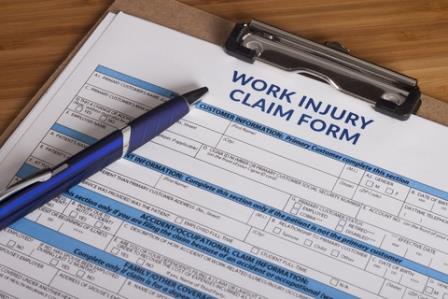
An employer is a “non-subscriber” if it goes without coverage, and is thus open to personal injury lawsuits from any incidents that occur at work. It is also important to note that certain defenses that are available in many personal injuries lawsuits, such as contributory negligence or assumption of risk, are not available to non-subscribers in these types of work injury cases.
When hired, workers must be notified whether their employer does or does not have coverage, and this notice must be posted along with other required workplace posters. The notice must also notify workers that they have five days to waive their right to workers’ compensation benefits and retain their right to sue the employer for a work-related injury.
If a worker waives his or her right to workers’ compensation, he or she also waives the right to receive benefits under the workers’ compensation law. In addition, workers’ compensation benefits are typically only available to employees (versus independent contractors); thus, it is vital that workers are also properly classified as employees.
Under the law, regardless of fault, an injury or illness is covered if it was sustained in the course of employment. However, there are also circumstances under which an injury or illness will not be covered, such as if it was sustained due to the employees:
In other words, if you are injured and you were involved in one of these activities, it could be difficult to obtain compensation to help with your medical expenses and any lost wages.
Many people remember the incident of the Mast Climbing Platform Collapse in Austin, Texas in June of 2009 when three construction employees of Capoeira Construction were killed when a mast climbing platform collapsed at a condominium project under construction.
When incidents like these occur, and they result in one or more worker fatalities (and sometimes multi-million dollar property loss, lawsuits, and/or settlements), investigations are typically performed at the request of an OSHA (Occupational Safety and Health Administration) field office as part of an enforcement inspection. The reports that come out of these investigations typically contain professional opinions from the investigating engineer, opinions concerning the root cause of the incident, and factual data and findings.
However, the incident does not have to involve fatalities: For example, just recently, the federal agency started investigating two construction companies after a roof collapse injured several workers. OSHA is charged with determining how the incident could have occurred and what needs to be done to prevent it from occurring again. If violations of OSHA standards are found, the agency then issues citations and monetary penalties.

When it comes to general safety and health provisions, OSHA has a number of requirements for construction site employers in order to ensure that workers are safe. Those requirements pertain to:
If you are involved in an incident at your workplace, consider following these steps:
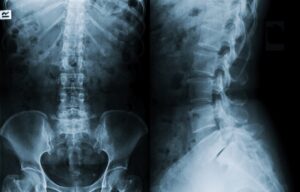 Nobody can prepare for the pain of learning that a loved one died in an accident on the job. No legal remedy can possibly erase the grief. However, there may be resources available to ease the financial impact of workplace death. Families and eligible dependents are entitled to death benefits from Texas employers that opt into the state workers’ compensation insurance.
Nobody can prepare for the pain of learning that a loved one died in an accident on the job. No legal remedy can possibly erase the grief. However, there may be resources available to ease the financial impact of workplace death. Families and eligible dependents are entitled to death benefits from Texas employers that opt into the state workers’ compensation insurance.
Death benefits are monthly payments that equal 75 percent of the deceased employee’s average weekly wage, up to a maximum set each year. Specific rules apply to who can receive the benefits and for how long the payments can continue based on the individual’s relationship with the deceased. Workers’ comp will also pay for up to $10,000 in burial costs.
In general, workers’ compensation would be the only way that deceased worker’s survivors could obtain benefits for subscribers. But there is an exception in Texas. If the death occurred due to gross negligence or an intentional oversight, it is possible to bring a wrongful death claim against the employer. Of course, non-subscribers may also face wrongful death lawsuits.
While death benefits are helpful, they are not always good enough to cover a family’s losses. A successful wrongful death claim can provide compensation for:
In Texas, families have two years from the date of death to file a wrongful death lawsuit against an employer. Our workplace injury lawyers can assist in the preparation of the claim and also talk to you about the possibility of filing a survival claim on behalf of the deceased.
Searching for an appropriate workers’ compensation attorney is not easy. There is no “one size fits all” law firm. In a huge state like Texas, it can be overwhelming to see the number of work injury lawyers available to you. So where to start?
Our Houston work injury lawyers handle all cases on a contingency fee basis. That means that you don’t pay unless we win your case. Contact Houston lawyer Fleming Law, now for a free consultation to find out more about how we can help with your workplace injury claim.